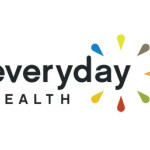- Industri: Health care
- Number of terms: 8622
- Number of blossaries: 1
- Company Profile:
When a woman has more than one fetus in the womb, as in the case of twins, triplets, or other higher order multiples.
Industry:Parenting
A blood clot that develops in a vein, usually in a leg. Pregnant women are more susceptible to clots during pregnancy and postpartum.
Industry:Parenting
A blood test given to a woman between weeks 15 and 18 of pregnancy to screen for an increased risk of the baby having a birth defect. High levels of AFP may be associated with a neural tube defect; low levels may be associated with Down syndrome. The test is used to decide whether more invasive testing, such as an amniocentesis, is needed.
Industry:Parenting
A CAM therapy in which pressure is applied to specific areas of the feet, hands, and ears to relieve a variety of aches and pains. Applying pressure to certain areas on or near the feet can trigger contractions, so it is best to avoid reflexology of the feet during pregnancy.
Industry:Parenting
The regular monthly reproductive cycle of a woman, including the growth of the lining of the uterus, the release of an egg, and if no fertilized egg is implanted, the expulsion of the uterine lining (the menstrual period). The typical cycle lasts 28 to 30 days and is counted from the first day of the period to the first day of the next period.
Industry:Parenting
The sac that surrounds the baby in the uterus and contains amniotic fluid in which the baby floats. Also called the bag of waters or amniotic sac, the membranes will rupture naturally or be ruptured artificially during labor.
Industry:Parenting
Nausea, vomiting, and food and smell aversions, that affects more than 70 percent of pregnant women. Morning sickness, which can occur any time of day, usually begins at four to eight weeks gestation and subsides by week 14 or 16.
Industry:Parenting
Paid or unpaid time off work to care for a new baby. Under the Family and Medical Leave Act of 1993, companies with 50 or more employees are required to offer eligible employees up to 12 weeks of unpaid leave to care for a new baby.
Industry:Parenting
More common in women with darker complexions, this discoloration of the face during pregnancy appears in a mask-like configuration or a confetti-like appearance on the forehead, nose, and cheeks. It gradually fades after delivery.
Industry:Parenting
